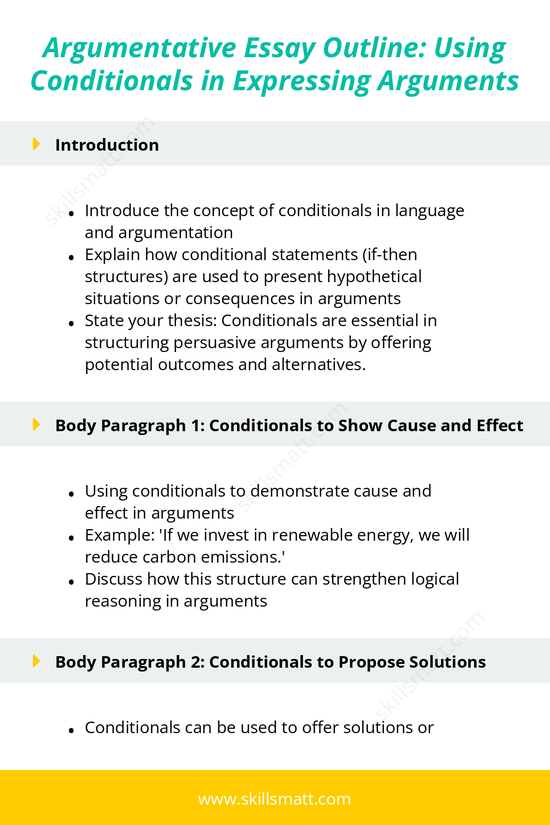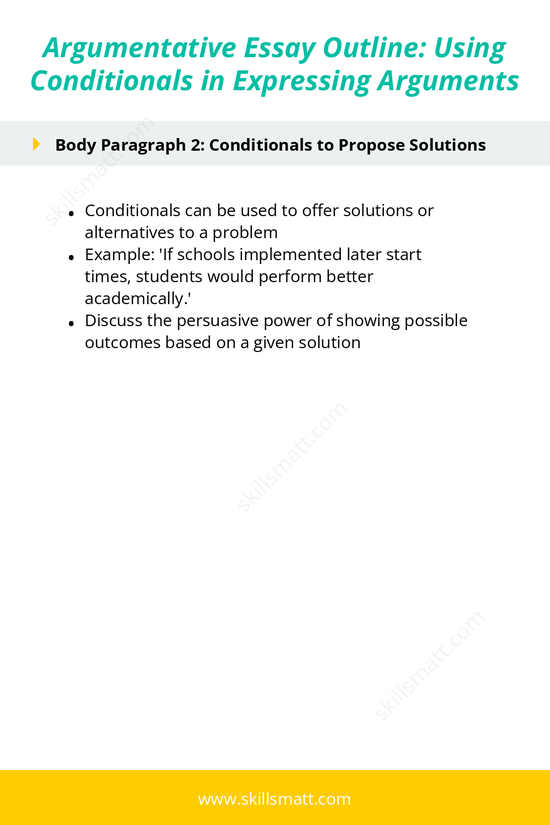Conditionals (if-then statements) are key tools in argumentation, helping to present hypothetical situations and consequences. By using conditionals effectively, writers can structure persuasive arguments, anticipate counterarguments, and propose solutions. Below is an outline to guide the use of conditionals in argumentative essays:
Introduction
- Introduce the concept of conditionals and their role in argumentation.
- Explain how if-then structures are used to present hypothetical scenarios and their consequences in arguments.
- Thesis statement: Conditionals are vital in shaping persuasive arguments by demonstrating potential outcomes and alternative solutions.
Body Paragraph 1: Conditionals to Show Cause and Effect
- Conditionals can be used to demonstrate a cause-and-effect relationship in arguments.
- Example: 'If we invest in renewable energy, we will reduce carbon emissions.'
- Discuss how using conditionals strengthens logical reasoning and clarifies the relationship between actions and outcomes.
Body Paragraph 2: Conditionals to Propose Solutions
- Conditionals are helpful when offering potential solutions to problems.
- Example: 'If schools implemented later start times, students would perform better academically.'
- This section explores the persuasive power of presenting solutions through conditionals, showing the positive outcomes that could result from specific actions.
Body Paragraph 3: Conditionals to Anticipate Counterarguments
- Conditionals help address potential counterarguments by offering responses to possible objections.
- Example: 'If critics argue that AI could harm jobs, we can show how AI can create new industries.'
- Discuss how acknowledging and addressing counterarguments using conditionals strengthens the overall argument.
Conclusion
- Summarize how conditionals clarify the relationship between actions, consequences, and alternative solutions.
- Reinforce the importance of using conditionals to build persuasive, reasoned arguments.
- Conclude by emphasizing the role of conditionals in making arguments more compelling and logical.


